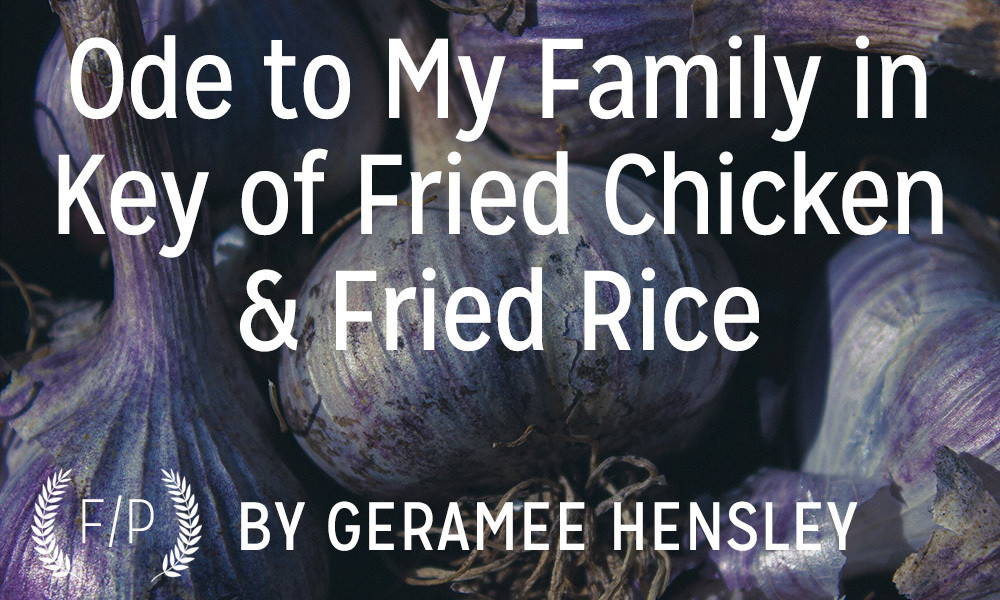At its heart, the poem is a celebration of family expressed through the lens of food. The specific mention of “KFC extra crispy / broken over swards of garlic fried rice” immediately grounds the poem in a tangible, relatable experience. For many, food is more than just sustenance; it’s a language of love, a carrier of memories, and a symbol of home. Hensley taps into this universal truth, highlighting how a particular dish can encapsulate an entire cultural and familial identity. The “Filipino meal” becomes a powerful metaphor for the author’s connection to their heritage and family roots. It’s not just about the taste, but the feeling, the unspoken understanding of what this meal represents within their family dynamic.
 Geramee Hensley_HHWinner
Geramee Hensley_HHWinner
However, the poem is not just a joyful reminiscence. Threads of grief and change are woven throughout. Lines like “what used to bring me comfort / now bloats my belly & anxiety” suggest a shift in perspective, perhaps brought on by loss or personal transformation. The comfort once found in familiar rituals now carries a bittersweet weight. This duality is further emphasized by the mention of “dying words” and a “new name,” hinting at a profound personal experience, possibly the loss of a loved one, that has redefined the speaker’s identity. The act of eating the fried chicken and rice becomes an act of remembrance, “swallowing every memory” associated with it. This highlights how grief can intertwine with even the simplest of pleasures, turning them into complex emotional experiences.
The poem also delves into themes of self-acceptance and cultural identity. Hensley writes, “I won’t colonize one part of me / w/ another / I’m so / disjointed / you could call me / a republic.” This powerful imagery speaks to the fragmented nature of identity, particularly for those who navigate multiple cultural influences. The refusal to “pronounce” words from “ma’s homeland” to “prove” something suggests a rejection of external validation and an embrace of a more personal, authentic connection to their heritage. The poem culminates in a powerful affirmation: “I am so Pinoy I will never stop dancing / I am so my mother’s child.” This declaration is a testament to resilience, a refusal to be defined by pain or loss, and a celebration of their enduring connection to their Filipino identity and their mother.
In conclusion, “Ode to My Family in Key of Fried Chicken & Fried Rice” is more than just a poem about food; it’s a rich tapestry of emotions and experiences tied to family, culture, and memory. Through vivid imagery and poignant reflections, Geramee Hensley invites us to savor the complex flavors of life, acknowledging both the sweetness of love and the lingering taste of loss. This poem serves as a powerful reminder of how our families shape us, nourish us, and remain with us, even in silence and absence.
